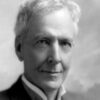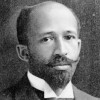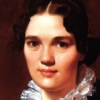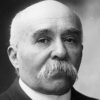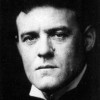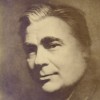Everything has been said, and we have come too late, now that men have been living and thinking for seven thousand years and more.
[Tout est dit, et l’on vient trop tard depuis plus de sept mille ans qu’il y a des hommes qui pensent.]Jean de La Bruyère (1645-1696) French essayist, moralist
The Characters [Les Caractères], ch. 1 “Of Works of the Mind [Des Ouvrages de l’Esprit],” § 1 (1.1) (1688) [tr. Stewart (1970)]
(Source)
Opening line of the book. La Bruyère's timeline is that of medieval scholars who calculated, from the Bible, that the age of the world to be only several thousand years old.
(Source (French)). Alternate translations:
We are come too late, after above seven thousand years that there have been men, and men have thought, to say any thing which has not been said already.
[Bullord ed. (1696)]
After above seven thousand Years, that there have been Men, and Men have thought, we come too late to say any thing which has not been said already.
[Curll ed. (1713)]
We are come too late, by several thousand Years, to say any thing new in Morality.
[Browne ed. (1752)]
After above seven thousand years, during which there have been men who have thought, we come too late to say anything that has not been said already.
[tr. Van Laun (1885)]
Quotations about:
experience
Note not all quotations have been tagged, so Search may find additional quotes on this topic.
No desire is more natural than the desire for knowledge. We assay all the means that can lead us to it. When reason fails us we make use of experience. Experience is a weaker and less dignified means: but truth is so great a matter that we must not disdain any method that leads us to it.
[Il n’est desir plus naturel que le desir de cognoissance. Nous essayons tous les moyens qui nous y peuvent mener. Quand la raison nous faut, nous y employons l’experience. Qui est un moyen de beaucoup plus foible et plus vil. Mais la verité est chose si grande, que nous ne devons desdaigner aucune entremise qui nous y conduise.]
Michel de Montaigne (1533-1592) French essayist
Essays, Book 3, ch. 13 “On Experience [De l’Experience]” (1588) (3.13) (1595) [tr. Screech (1987)]
(Source)
Aristotle's Metaphysics opens with the phrase "All men by nature desire knowledge."
The 1595 edition included a quotation from Manilius inserted after the word "experience" (omitted here). It also added the second descriptor (after "weaker") of how experience compares to reason.
(Source (French)). Alternate translations:
There is no desire more naturall, then that of knowledge. We attempt all meanes that may bring us unto it. When reason failes us, we employ experience. Which is a meane by much more, weake and vile. But trueth is of so great consequence, that wee ought not disdaine any induction, that may bring us unto it.
[tr. Florio (1603)]
There is no Desire more natural than that of Knowledge: We try all Ways that can lead us to it; where Reason is wanting, we therein employ Experience which is a Means much more weak and cheap. But Truth is so great a thing, that we ought not to disdain any Mediation that will guide us to it.
[tr. Cotton (1686)]
There is no desire more natural than that of knowledge. We try all ways that can lead us to it; where reason is wanting, we therein employ experience which is a means much more weak and cheap; but truth is so great a thing, that we ought not to disdain any mediation that will guide us to it.
[tr. Cotton/Hazlitt (1877)]
There is no desire more natural than the desire for knowledge. We make trial of all means that can lead us to it. When reasoning fails us, we then make use of experience, which is a much feebler and lower means; but truth is so great a thing that we must not disdain any medium that leads us to it.
[tr. Ives (1925)]
There is no desire more natural than the desire for knowledge. We try all the ways that can lead us to it. When reason fails us, we use experience, which is a weaker and less dignified means. But truth is so great a thing that we must not disdain any medium that will lead us to it.
[tr. Frame (1943)]
I postpone death by living, by suffering, by error, by risking, by giving, by losing.
Every child should have mud pies, grasshoppers, water-bugs, tadpoles, frogs, mud-turtles, elderberries, wild strawberries, acorns, chestnuts, trees to climb, brooks to wade in, water-lilies, woodchucks, bats, bees, butterflies, various animals to pet, hay-fields, pine-cones, rocks to roll, sand, snakes, huckleberries and hornets and any child who has been deprived of these has been deprived of the best part of his education.
Luther Burbank (1849-1926) American horticulturist
The Training of the Human Plant, ch. 10 “Character” (1907)
(Source)
According to Oscar Wilde, all that experience teaches us is that history repeats itself, and that the sin we do once and with loathing we will do many times and with pleasure. But the neurotic knows that the sin he does once and with loathing he will do many times and with loathing.
All that [experience] really demonstrated was that our future would be the same as our past, and that the sin we had done once, and with loathing, we would do many times, and with joy.
Oscar Wilde (1854-1900) Irish poet, wit, dramatist
The Picture of Dorian Gray, ch. 4 (1891)
(Source)
The passage also occurs in ch. 3 of the original Lippincott's Monthly Magazine (1890-06) version.
As extracted into Oscariana and epigram form (e.g.), it is given in the present tense:
All that it really demonstrates is that our future will be the same as our past, and that the sin we have done once, and with loathing, we shall do many times, and with joy.
Children learn what they experience. They are like wet cement. Any word that falls on them makes an impact.
Haim Ginott (1922-1973) Israeli-American school teacher, child psychologist, psychotherapist [b. Haim Ginzburg]
Between Parent and Child: Revised and Updated Edition, ch. 10 “Summing Up” (2003 ed.) [with A. Ginott and H. W. Goddard]
(Source)
Frequently paraphrased (e.g.) as "Children are like wet cement. Whatever falls on them makes an impression."
This is usually cited as being from the original 1965 edition of the book, but cannot be found there. Instead, it appears to be from the 2003 edition, as revised and updated by his wife, Dr Alice Ginott, and Dr H Wallace Goddard. It is unclear if Haim Ginott may have used this phrase in other contexts.
Liberty trains for liberty. Responsibility is the first step in responsibility.
W. E. B. Du Bois (1868-1963) American writer, historian, social reformer [William Edward Burghardt Du Bois]
John Brown, ch. 13 “The Legacy of John Brown” (1909)
(Source)
On the policy among white colonial powers that non-whites "ought to be under the restraint and benevolent tutelage of stronger and wiser nations for their own benefit," until they are "capable" of being free.
We are cups, constantly and quietly being filled.
The trick is knowing how to tip ourselves over and let the beautiful stuff out.Ray Bradbury (1920-2012) American writer, futurist, fabulist
“The Secret Mind,” The Writer (1965-11)
(Source)
Reprinted in Bradbury, Zen in the Art of Writing (1990).
Writers do not live one life, they live two. There is the living and then there is the writing. There is the second tasting, the delayed reaction.
Great artists say that the most beautiful thing in the world is a little baby. Well, the next most beautiful thing is an old lady, for every wrinkle is a picture.
So whatever you want to do, just do it. Don’t worry about making a damn fool of yourself. Making a damn fool of yourself is absolutely essential. And you will have a great time.
Gloria Steinem (b. 1934) American feminist, journalist, activist
Commencement address, Tufts University (1987-05-17)
(Source)
My son, young men’s arms are indeed taut for action, but old men’s counsels are better; for time teaches the most subtle lessons.
Euripides (485?-406? BC) Greek tragic dramatist
Bellerophon [Βελλεροφῶν], frag. 291 (TGF) (c. 430 BC) [tr. Collard, Hargreaves, Cropp (1995)]
(Source)
Alternate translation:
Son, the hands of young men always itch for action, but the
judgment of the old is sounder.
Time teaches discrimination
[tr. Stevens (2012)]
Every failure teaches a man something. For example, that he will probably fail again next time.
H. L. Mencken (1880-1956) American writer and journalist [Henry Lewis Mencken]
A Little Book in C Major, ch. 2, § 24 (1916)
(Source)
Variants:
EXPERIENCE. A series of failures. Every failure teaches a man something, to wit, that he will probably fail again next time.
A Book of Burlesques, "The Jazz Webster" (1924)
Every failure teaches a man something, to wit, that he will probably fail again next time.
Chrestomathy, ch. 30 "Sententiae" (1949)
Ours is not the only story, just the most interesting one.
Mignon McLaughlin (1913-1983) American journalist and author
The Second Neurotic’s Notebook, ch. 4 (1966)
(Source)
A real education takes place, not in the lecture hall or library, but in the rooms of friends, with earnest frolic and happy disputation. Wine can be a wiser teacher than ink, and banter is often better than books. That was my theory at least, and I was living by it.
Stephen Fry (b. 1957) British actor, writer, comedian
The Fry Chronicles: An Autobiography, Part 1 “College to Colleague” (2012)
(Source)
Other people’s truth may comfort us, but only your own persuades us.
Mignon McLaughlin (1913-1983) American journalist and author
The Second Neurotic’s Notebook, ch. 4 (1966)
(Source)
On the subject of Biblical texts and examples to why you can’t do certain things with your body that you wish to, I find that absolutely absurd. I’ve always been extremely uncomfortable with the idea in any society that belief is based on revealed truth, that’s to say on a text like a Bible or a Qur’an, or whatever it is. It seems to me that the greatness of our culture, for all its incredible faults, is that we have grown up on the Greek ideal of discovering the truth, discovering by looking around us, by empirical experiment, by the combination of the experience of generations of ancestors who have contributed to our sum knowledge of the way the world works, and so on. And to have that snatched away and to be told what to think by a book, however great it may be in places, this is a book that says you can sell your daughter into slavery, it’s a book that bans menstruating women from within miles of temples. The fact that it also says that for one man to lie with another man is an abomination, is no more made relevant or important than the fact that you can’t eat shellfish.
Stephen Fry (b. 1957) British actor, writer, comedian
An Evening with Callow & Fry, Norwich (2003-12)
(Source)
Moderation. Small helpings. Sample a little bit of everything. These are the secrets of happiness and good health. You need to enjoy the good things in life, but you need not overindulge.
Julia Child (1912-2004) American chef and writer
“What I’ve Learned,” interview by MIke Sager, Esquire (2001-06)
(Source)
Man comes to each age of his life a novice.
[L’homme arrive novice à chaque âge de la vie.]
Nicolas Chamfort (1741-1794) French writer, epigrammist (b. Nicolas-Sébastien Roch)
Products of Perfected Civilization [Produits de la Civilisation Perfectionnée], Part 2 Characters and Anecdotes [Caractères et Anecdotes], ch. 12 (1795) [tr. Merwin (1969)]
(Source)
(Source (French)). Alternate translations:
Man arrives a novice at every age of life.
[Source (1878)]
Man reaches each stage in his life as a novice.
[tr. Hutchinson (1902), "The Cynic's Breviary"]
A man begins every stage of his life as a novice.
[tr. Parmée, ¶412 (2003)]
I have known sorrow — therefore I
May laugh with you, O friend, more merrily
Than those who never sorrowed upon earth
And know not laughter’s worth.I have known laughter — therefore I
May sorrow with you far more tenderly
Than those who never guess how sad a thing
Seems merriment to one heart’s suffering.Theodosia Pickering Garrison (1874-1944) American poet
“Knowledge,” The Century Magazine (1900-08)
(Source)
I hav lived in this world jist long enuff tew look karefully the seckond time into things that i am the most certain ov the fust time.
[I have lived in this world just long enough to look carefully the second time into things that I am the most certain of the first time.]
Josh Billings (1818-1885) American humorist, aphorist [pseud. of Henry Wheeler Shaw]
Everybody’s Friend, Or; Josh Billing’s Encyclopedia and Proverbial Philosophy of Wit and Humor, ch. 152 “Affurisms: Chicken Feed” (1874)
(Source)
A goodly fellow by his looks, though worn
As most good fellows are, by pain or pleasure,
Which tear life out of us before our time;
I scarce know which most quickly: but he seems
To have seen better days, as who has not
Who has seen yesterday?
Animals never spend time dividing experience into little bits and speculating about all the bits they’ve missed. The whole panoply of the universe has been neatly expressed to them as things to (a) mate with, (b) eat, (c) run away from, and (d) rocks. This frees the mind from unnecessary thoughts and gives it a cutting edge where it matters.
Terry Pratchett (1948-2015) English author
Equal Rites (1987)
(Source)
Frequently paraphrased:
The entire universe has been neatly divided into things to (a) mate with, (b) eat, (c) run away from, and (d) rocks.
Most people learn nothing from experience, except confirmation of their prejudices.
Bertrand Russell (1872-1970) English mathematician and philosopher
“The Lessons of Experience,” New York American (1931-09-23)
(Source)
“Life is meant to be lived.” Telling that to most of us is as useful as telling a mouse that aluminum is meant to be made into cars.
Mignon McLaughlin (1913-1983) American journalist and author
The Neurotic’s Notebook, ch. 4 (1963)
(Source)
The greatest of sages can commit one mistake, but not two; he may fall into error, but he doesn’t lie down and make his home there.
[En un descuido puede caer el mayor sabio, pero en dos no; y de paso, que no de asiento.]
Baltasar Gracián y Morales (1601-1658) Spanish Jesuit priest, writer, philosopher
The Art of Worldly Wisdom [Oráculo Manual y Arte de Prudencia], § 214 (1647) [tr. Maurer (1992)]
(Source)
(Source (Spanish)). Alternate translations:
The wisest man may very well fail once, but not twice; transiently, and by inadvertency, but not deliberately.
[Flesher ed. (1685)]
A wise man may make one slip but never two, and that only in running, not while standing still.
[tr. Jacobs (1892)]
The wisest of men may slip once, but not twice, and that only by chance, and not by design.
[tr. Fischer (1937)]
Anyone who wants to know the human psyche will learn next to nothing from experimental psychology. He would be better advised to [abandon exact science] put away his scholar’s gown, bid farewell to his study, and wander with human heart throughout the world. There in the horrors of prisons, lunatic asylums and hospitals, in drab suburban pubs, in brothels and gambling-hells, in the salons of the elegant, the Stock Exchanges, Socialist meetings, churches, revivalist gatherings and ecstatic sects, through love and hate, through the experience of passion in every form in his own body, he would reap richer stores of knowledge than text-books a foot thick could give him and he will know how to doctor the sick with a real knowledge of the human soul.
You choose, you live the consequences. Every yes, no, maybe, creates the school you call your personal experience.
Experience is the name every one gives to their mistakes.
Oscar Wilde (1854-1900) Irish poet, wit, dramatist
Lady Windermere’s Fan, Act 3 [Mr. Dumby] (1892)
(Source)
Also in Wilde's The Picture of Dorian Gray, ch. 4 (1890):
Experience was of no ethical value. It was merely the name men gave to their mistakes.
Experience is nearly always commonplace; the present is not romantic in the way the past is, and ideals and great visions have a way of becoming shoddy and squalid in practical life. Literature reverses this process.
Northrop Frye (1912-1991) Canadian literary critic and literary theorist
The Educated Imagination, Talk 3 “Giants in Time” (1963)
(Source)
Some free advice for you: Never fight an old man. They’ve been there, done that, written the book, made and starred in the movie, designed the T-shirt, and they’ve got no ego at all about how the fight gets won.
Comrades, we’re well acquainted with evils, then and now.
Worse than this you have suffered. God will end all this too.[O socii — neque enim ignari sumus ante malorum —
O passi graviora, dabit deus his quoque finem.]Virgil (70-19 BC) Roman poet [b. Publius Vergilius Maro; also Vergil]
The Aeneid [Ænē̆is], Book 1, l. 198ff (1.198-199) [Aeneas] (29-19 BC) [tr. Day Lewis (1952)]
(Source)
(Source (Latin)). Alternate translations:
Deare friends (for we have many sorrows past)
You worse have felt, God these will end at last.
[tr. Ogilby (1649)]
Endure, and conquer! Jove will soon dispose
To future good our past and present woes.
[tr. Dryden (1697)]
O companions, who have sustained severer ills than these, (for we are not strangers to former days of adversity,) to these, too, God will grant a termination.
[tr. Davidson/Buckley (1854)]
Comrades and friends! for ours is strength
Has brooked the test of woes;
O worse-scarred hearts! these wounds at length
The Gods will heal, like those.
[tr. Conington (1866)]
O friends, who greater sufferings still have borne,
(for not unknown to us are former griefs,)
And end also to these the deity
Will give.
[tr. Cranch (1872), l. 251ff]
O comrades, for not now nor aforetime are we ignorant of ill, O tried by heavier fortunes, unto this last likewise will God appoint an end.
[tr. Mackail (1885)]
O fellows, we are used ere now by evil ways to wend;
O ye who erst bore heavier loads, this too the Gods shall end.
[tr. Morris (1900)]
Comrades! of ills not ignorant; far more
Than these ye suffered, and to these as well
Will Jove give ending, as he gave before.
[tr. Taylor (1907), st. 27 / l. 235ff]
Companions mine, we have not failed to feel
calamity till now. O, ye have borne
far heavier sorrow: Jove will make an end
also of this.
[tr. Williams (1910)]
O comrades -- for ere this we have not been ignorant of evils -- O ye who have borne a heavier lot, to this, too, God will grant an end!
[tr. Fairclough (1916)]
O comrades, we have been through evil
Together before this; we have been through worse
[...] This, too, the god will end.
[tr. Humphries (1951)]
O comrades -- surely we're not ignorant
of earlier disasters, we who have suffered
things heaver than this -- our god will give
an end to this as well.
[tr. Mandelbaum (1971), l. 276ff]
Friends and companions,
Have we not known hard hours before this?
My men, who have endured still greater dangers,
God will grant us an end to these as well.
[tr. Fitzgerald (1981), l. 270ff]
My friends, this is not the first trouble we have known. We have suffered worse before, and this too will pass. God will see to it.
[tr. West (1990)]
O friends (well, we were not unknown to trouble before)
O you who’ve endured worse, the god will grant an end to this too.
[tr. Kline (2002)]
Trojans! This is not our first taste of trouble.
You have suffered worse than this, my friends,
And God will grant an end to this also.
[tr. Lombardo (2005), l. 234ff]
My comrades, hardly strangers to pain before now,
we all have weathered worse. Some god will grant us
an end to this as well.
[tr. Fagles (2006)]
My friends: we're no strangers to misfortune. You've suffered worse; some god will end this too.
[tr. Bartsch (2021)]
Monsieur, my son is twenty-two years old. If he had not become a Communist at twenty-two, I would have disowned him. If he is still a Communist at thirty, I will do it then.
Georges Clemenceau (1841–1929) French statesman, physician, journalist
(Attributed)
Response to someone who was alarmed about his son being a Communist, as attributed in Bennett Cerf, Try and Stop Me (1944).
This may be the source of the quote also attributed to Clemenceau, “Any man who is not a socialist at age twenty has no heart. Any man who is still a socialist at age forty has no head.” Later, George Seldes attributed to David Lloyd George: "A young man who isn’t a socialist hasn’t got a heart; an old man who is a socialist hasn’t got a head.” François Guizot in the mid-19th Century was said to have said, “Not to be a republican at twenty is proof of want of heart; to be one at thirty is proof of want of head.”
The earliest version of this comes from a public letter by Anselme Polycarpe Batbie (1828-1887), who attributed this to Edmund Burke: "Anyone who is not a republican at twenty casts doubt on the generosity of his soul; but he who, after thirty years, perseveres, casts doubt on the soundness of his mind. [Celui qui n’est pas républicain à vingt ans fait douter de la générosité de son âme; mais celui qui, après trente ans, persévère, fait douter de la rectitude de son esprit.]" This has not been found in Burke's writings.
Variants have also been attributed to Benjamin Disraeli, Dean Inge, George Bernard Shaw, Winston Churchill, Otto von Bismarck, and Bertrand Russell.
Further discussion of this quotation:
“Darkness” is shorthand for anything that scares me — that I want no part of — either because I am sure that I do not have the resources to survive it or because I do not want to find out. The absence of God is in there, along with the fear of dementia and the loss of those nearest and dearest to me. So is the melting of polar ice caps, the suffering of children, and the nagging question of what it will feel like to die. If I had my way, I would eliminate everything from chronic back pain to the fear of the devil from my life and the lives of those I love — if I could just find the right night-lights to leave on.
At least I think I would. The problem is this: when, despite all my best efforts, the lights have gone off in my life (literally or figuratively, take your pick), plunging me into the kind of darkness that turns my knees to water, nonetheless I have not died. The monsters have not dragged me out of bed and taken me back to their lair. The witches have not turned me into a bat. Instead, I have learned things in the dark that I could never have learned in the light, things that have saved my life over and over again, so that there is really only one logical conclusion. I need darkness as much as I need light.
Barbara Brown Taylor (b. 1951) American minister, academic, author
Learning to Walk in the Dark, Introduction (2014)
(Source)
Men will learn eventually, and if they insist on rejecting the received wisdom of generations past, they do not thereby succeed at invalidating it; they merely condemn themselves to learning it, time and again, by ever grimmer experience.
Hilaire Belloc (1870-1953) Franco-British writer, historian [Joseph Hilaire Pierre René Belloc]
(Misattributed)
(Source)
While usually attributed to Belloc, and even further to his essay "The Restoration of Property" (1936), it does not appear in that work, proper. Rather, it is found in the Introduction to the 2002 IHS Press edition the work, signed only by the Directors of the IHS Press.
Art’s distillation. Experience is wine, and art is the brandy we distill from it.
Robertson Davies (1913-1995) Canadian author, editor, publisher
A Mixture of Frailties, ch. 1 (1958)
(Source)
Like common law, the moral imagination works by precedent and example. We are all equipped with an inherited archive of historical events that serves as the background for everything that occurs. Especially when we are confronted with new events that test the limits of moral comprehension, we call upon what is most familiar in historical memory to regain our sense of moral orientation. We require this archive not only for political judgment, but as the necessary horizon for human experience.
Peter E, Gordon (b. 1966) American intellectual historian
“Why Historical Analogy Matters,” New York Review of Books (7 Jan 2020)
(Source)
an optimist is a guy
that has never had
much experienceDon Marquis (1878-1937) American journalist and humorist
archy and mehitabel, “certain maxims of archy” (1927)
(Source)
These are times in which a Genious would wish to live. It is not in the still calm of life, or the repose of a pacific station, that great characters are formed. Would Cicero have shone so distinguished an orater, if he had not been roused, kindled and enflamed by the Tyranny of Catiline, Millo, Verres and Mark Anthony. The Habits of a vigorous mind are formed in contending with difficulties. All History will convince you of this, and that wisdom and penetration are the fruits of experience, not the Lessons of retirement and leisure. Great necessities call out great virtues. When a mind is raised, and animated by scenes that engage the Heart, then those qualities which would otherways lay dormant, wake into Life, and form the Character of the Hero and the Statesman.
Abigail Adams (1744-1818) American correspondent, First Lady (1797-1801)
Letter to John Quincy Adams (19 Jan 1780)
(Source)
Written when John Quincy was twelve, in Paris with his father for the peace negotiations with Britain.
If you wish to succeed in life, make perseverance your bosom friend, experience your wise counselor, caution your elder brother, and hope your guardian genius.
Joseph Addison (1672-1719) English essayist, poet, statesman
(Attributed)
Broadly attributed to Addison, but possibly a 19th Century creation. The earliest found appearance is in 1854, and the earliest attribution to Addison in in 1862.
Perhaps God made cats so that man might have the pleasure of fondling the tiger ….
Robertson Davies (1913-1995) Canadian author, editor, publisher
The Diary of Samuel Marchbanks, ch. 20 (1947)
(Source)
If a man should ascend alone into heaven and behold clearly the structure of the universe and the beauty of the stars, there would be no pleasure for him in the awe-inspiring sight, which would have filled him with delight if he had had someone to whom he could describe what he had seen.
[Si quis in coelum ascendisset, naturamque mundi, et pulchritudinem siderum perspexisset, insuavem illam admirationem ei fore; quae jucudissima fuisset, si aliquem, cui narraret, habuisset.]
Marcus Tullius Cicero (106-43 BC) Roman orator, statesman, philosopher
Laelius De Amicitia [Laelius on Friendship], ch. 23 / sec. 88 (44 BC) [tr. Falconer (1923)]
(Source)
Original Latin. Cicero attributes this as a paraphrase of Archytas of Tarentum (d. 394 BC), a Pythagorean philosopher and astronomer. Alternate translations:
If any one could have ascended to the sky, and surveyed the structure of the universe, and the beauty of the stars, that such admiration would be insipid to him; and yet it would be most delightful if he had someone to whom he might describe it.
[tr. Edmonds (1871)]
If one had ascended to heaven, and had obtained a full view of the nature of the universe and the beauty of the stars, yet his admiration would be without delight, if there were no one to whom he could tell what he had seen.
[tr. Peabody (1887)]
If a man could ascend to heaven and get a clear view of the natural order of the universe, and the beauty of the heavenly bodies, that wonderful spectacle would give him small pleasure, though nothing could be conceived more delightful if he had but had some one to whom to tell what he had seen.
[tr. Shuckburgh (1909)]
If a man could mount to heaven and survey the mighty universe with all the planetary orbs, his admiration of its beauties would be much diminished, unless he had someone to share in his pleasure.
[Source]
Learning and living. But they are really the same thing, aren’t they? There is no experience from which you can’t learn something. … And the purpose of life, after all, is to live it, to taste experience to the utmost, to reach out eagerly and without fear for newer and richer experience.
Using maxims is appropriate for those who are older in age when uttered about things for which they have some experience. Using maxims before one is this age lacks propriety as does story-telling: to speak about what one has no experience in is foolish and uneducated. A sufficient sign of this is that bumpkins especially tend to make up maxims and they easily show them off.
[ἁρμόττει δὲ γνωμολογεῖν ἡλικίᾳ μὲν πρεσβυτέροις, περὶ δὲ τούτων ὧν ἔμπειρός τις ἐστί, ὡς τὸ μὲν μὴ τηλικοῦτον ὄντα γνωμολογεῖν ἀπρεπὲς ὥσπερ καὶ τὸ μυθολογεῖν, περὶ δ᾿ ὧν ἄπειρος, ἠλίθιον καὶ ἀπαίδευτον. σημεῖον δ᾿ ἱκανόν· οἱ γὰρ ἀγροῖκοι μάλιστα γνωμοτύποι εἰσὶ καὶ ῥᾳδίως ἀποφαίνονται.]
Aristotle (384-322 BC) Greek philosopher
Rhetoric [Ῥητορική; Ars Rhetorica], Book 2, ch. 21, sec. 9 (2.21.9) / 1395a.9 (350 BC) [tr. @sentantiq (2018)]
(Source)
(Source (Greek)). Alternate translations:
In point of age, the use of maxims befit the old, and should be on those matters of which they have particular experience; so that for one who has not arrived at that stage of life, to use maxims is unbecoming; just it is for him to use fables; and if it be on matters whereof he has no experience, it is absurd, and a mark of ignorance. And the following is a sufficient proof of it, for that the rustics most of all are proverb-mongers, and are ready at uttering them.
[Source (1847)]
The employment of maxims becomes him who is rather advanced in life; and particularly as respects subjects about which each happens to be well informed. Since for one not so advanced in age to sport maxims is bad taste, just as it is for him to have recourse to fables: and the ue of them on subjects about which one is ignorant is silly, and argues a want of education. There is a sufficient sign of the truth of this; for the boors of the country are of all other people most fond of hammering out maxims, and set them forth with great volubility.
[tr. Buckley (1850)]
The use of maxims is suitable to elderly men, and in regard to subjects with which one is conversant; for sententiousness, like story-telling, is unbecoming in a younger man; while, in regard to subjects with which one is not conversant, it is stupid and shows want of culture. It is token enough of this that rustics are the greatest coiners of maxims, and the readiest to set forth their views.
[tr. Jebb (1873)]
The use of maxims is suitable for one who is advanced in years, and in regard to things in which one has experience; since the use of maxims before such an age is unseemly, as also is story-telling; and to speak about things of which one has no experience shows foolishness and lack of education. A sufficient proof of this is that rustics especially are fond of coining maxims and ready to make display of them.
[tr. Freese (1924)]
The use of Maxims is appropriate only to elderly men, and in handling subjects in which the speaker is experienced. For a young man to use them is -- like telling stories -- unbecoming; to use them in handling things in which one has no experience is silly and ill-bred: a fact sufficiently proved by the special fondness of country fellows for striking out maxims, and their readiness to air them.
[tr. Roberts (1924)]
The use of maxims is suitable for one who is advanced in years, and in regard to things in which one has experience; since the use of maxims before such an age is unseemly, as also is story-telling; and to speak about things of which one has no experience shows foolishness and lack of education. A sufficient proof of this is that rustics especially are fond of coining maxims and ready to make display of them.
[tr. Freese (1926)]
It is fitting for someone more advanced in age to speak in maxims, and about things he has experience of, since it is inappropriate for someone not of that age to speak in maxims, just as it also to tell myths, and to do so about things he is inexperienced in, this being a mark of foolishness and lack of education. There is a sufficient sign of this: country bumpkins are the ones most given to uttering maxims ....
[tr. Bartlett (2019)]
Life is too short to drink bad wine.
Johann Wolfgang von Goethe (1749-1832) German poet, statesman, scientist
(Misattributed)
Often attributed to him, but not found in Goethe's works. The attribution, though, may come from translators' commentary on Goethe's West–Eastern Diwan, "The Book of the Cup-Bearer" (1819/1827), that refers to a poetic passage as deriving from Diez's 1811 translation of the Book of Kabus (Qabus):
It comes to this, that it is a sin to drink wine. If though, then committest sin, commit it at least for the best wine, for otherwise wouldst though on one part commit sin, and on another drink bad wine. By God! that would be the most sorrowful among sorrowful things. [tr. Rogers (1890)]
It so happens that wine-drinking is a sin. Hence, if you do commit this sin, do it at least with the best wine; otherwise, you'll commit the sin, on the one hand, and on the other, you'll drink bad wine. By God! That would be the sorriest of all sorry things. [tr. Ormsby (2019)]
More information: The Big Apple: “Life is too short to drink cheap wine”
What can be more delightful than to have someone to whom you can say everything with the same absolute confidence as to yourself? Is not prosperity robbed of half its value if you have no one to share your joy?
[Quid dulcius quam habere quicum omnia audeas sic loqui ut tecum? Qui esset tantus fructus in prosperis rebus, nisi haberes, qui illis aeque ac tu ipse gauderet?]
Marcus Tullius Cicero (106-43 BC) Roman orator, statesman, philosopher
Laelius De Amicitia [Laelius on Friendship], ch. 6 / sec. 22 (44 BC) [tr. Shuckburgh (1909)]
(Source)
Original Latin. Peabody (below) attributes the first sentence here to Ennius, whom Cicero quotes in the previous sentence, but nobody else does. Alternate translations:
What can be more delightful than to have one to whom you can speak on all subjects just as to yourself? Where would be the great enjoyment in prosperity if you had not one to rejoice in it equally with yourself?
[tr. Edmonds (1871)]
What sweeter joy than in the kindred soul, whose converse differs not from self-communion? How could you have full enjoyment of prosperity, unless with one whose pleasure in it was equal to your own?
[tr. Peabody (1887)]
What is sweeter than to have someone with whom you may dare discuss anything as if you were communing with yourself? How could your enjoyment in times of prosperity be so great if you did not have someone whose joy in them would be equal to your own?
[tr. Falconer (1923)]
What is sweeter than to have someone with whom you dare to discuss everything, as if with yourself? How could there be great joy in prosperous things, if you did not have someone who would enjoy them equally much as you yourself?
[Source]
Beauty is an ecstasy; it is as simple as hunger. There is really nothing to be said about it. It is like the perfume of a rose: you can smell it and that is all.
W. Somerset Maugham (1874-1965) English novelist and playwright [William Somerset Maugham]
Cakes and Ale, ch. 11 (1930)
(Source)
When theology erodes and organization crumbles, when the institutional framework of religion begins to break up, the search for a direct experience which people can feel to be religious facilitates the rise of cults.
Daniel Bell (1919-2011) American sociologist, writer, editor, academic
“Religion in the Sixties,” Social Research (Fall 1971)
(Source)





